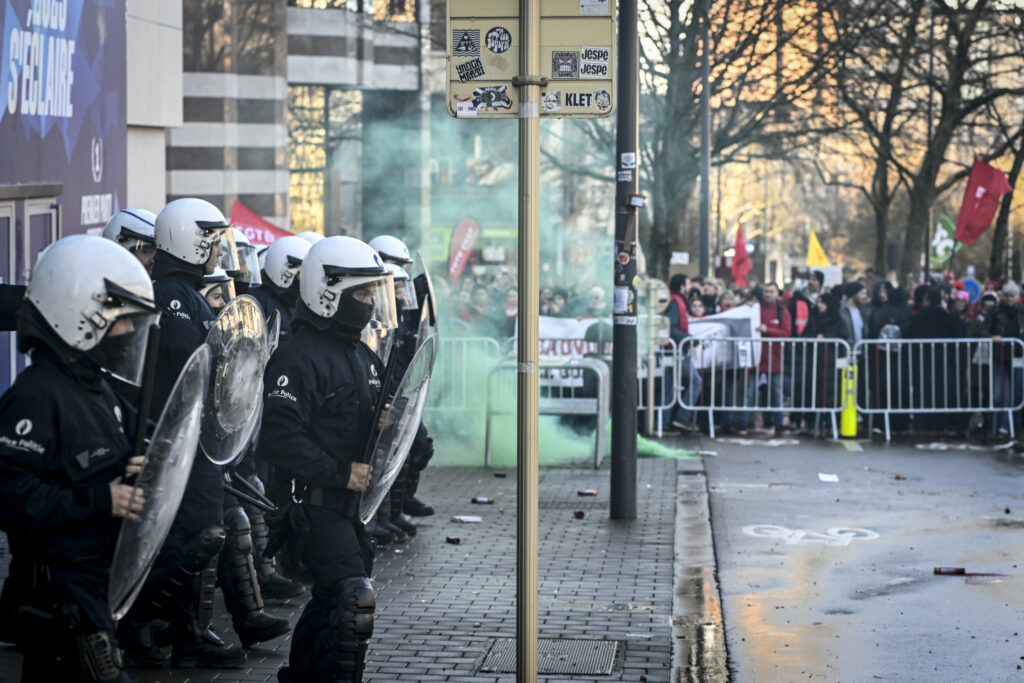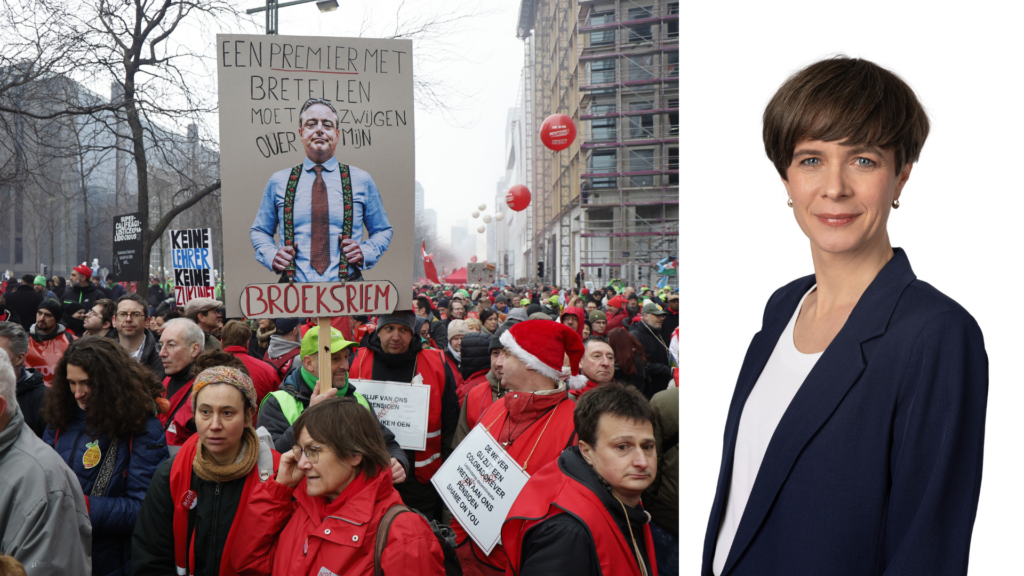Cieltje Van Achter is the Flemish Minister for Brussels and Media and N-VA negotiator to form the Brussels regional government.
Brussels is the beating heart of Europe. It is the stage on which our country is presented to the world and home to international institutions and multinational businesses. However, ongoing challenges such as strikes, political deadlock, and uncertainty continue to affect its reputation. The question is not whether Brussels can thrive, but whether we are willing to do what it takes to let it.
This new wave of protests reflects a deep unease, but directing frustration at much-needed reforms risks stalling the very progress so many are calling for. The Federal Government has barely begun its term, yet opposition is already mounting against policies that haven’t even had the chance to take effect. Meaningful change takes time – dismissing it before it begins only deepens the political inertia we are trying to escape. How can anyone claim to want change while actively sabotaging it?
With this new Federal Government in charge, some long-overdue changes are at last underway for the Capital Region of Brussels. The new Canal Plan introduces much-needed security measures, making the city safer for residents and visitors alike. The long-debated police zone merger is finally happening, promising a more effective, coordinated law enforcement strategy. These are not abstract proposals – they are tangible changes designed to make Brussels a better, safer, and more functional city. And yet, rather than welcoming these efforts, some prefer to take to the streets in protest.
The true issue plaguing Brussels is not the policies of the Federal Government but the chronic failures of its own regional leadership. For over eight months, vital reforms have been stalled, sacrificed on the altar of political expediency. Brussels remains gridlocked as certain parties continue to veto the formation of a regional government. While politicians bicker, the budget deficit deepens, the security crisis remains unaddressed, and the cleanliness of our city continues to deteriorate.
Few issues are as urgent – or as chronically overlooked – as Brussels’ persistently high unemployment rate and the glaring lack of action to address it. While Flanders and the Federal Government take steps to bring more people into work, Brussels remains adrift, held back by inertia and political hesitancy. The lack of interest in implementing necessary activation policies not only harms the unemployed but also weakens Brussels’ overall economic potential.
The focus should not be on resisting change, but on demanding better from those who have long neglected to deliver it. If Brussels is to live up to its potential, it needs leadership willing to confront its deepest challenges, not just manage its stagnation.
Brussels deserves better. If there is to be a fight, let it be for a city that unlocks its full potential —not against the very reforms that could finally make that possible.

Teachers during a two-day strike organised by the teachers' unions of the Wallonia-Brussels Federation, Monday 27 January 2025 in Brussels. Credit: Belga

